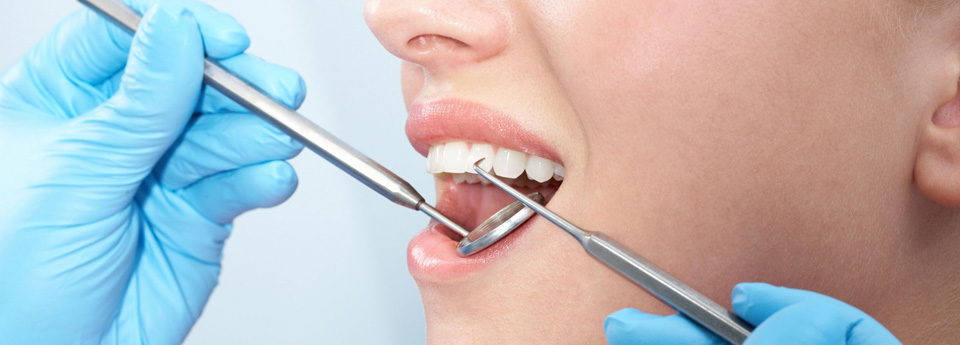General dentistry
General dentistry also covers the following the services:
Cavity Treatment & Prevention
A cavity is nothing to be embarrased about but you will need to get immediate dental treatment to prevent any further damage to your tooth. Leaving a cavity untreated can result in further dental problems. A possible warning sign of a cavity is tooth pain, particularly when consuming sweet, hot or cold foods and drinks. If you think you may have a cavity started, contact us today.
If a cavity is discovered in its early stages, you may not even need a filling!
Cavity Prevention
A cavity, also known as tooth decay, is one of the most common diseases. Fortunately, cavities can easily be prevented with consistent good oral hygiene habits, such as:
- Brushing your teeth properly at least twice per day.
- Floss daily to remove food debris in between your teeth.
- Using an antimicrobial mouthrinse to help reduce plaque.
- Eating a well-balanced and nutrituous diet with limited sweets.
- Regular visits to the dentist at least twice per year.
Tooth Extractions
If you have a tooth that is severely damaged, it may need to be removed. Extraction is necessary when decay or an abscessed tooth is so severe that no other treatment will cure the infection. Removing the tooth will help keep infection from spreading to other areas of your mouth.
Root Canals
When a tooth becomes badly decayed or infected, a root canal is performed to save it. If the tooth isn’t treated, the surrounding tissue will get infected and abscesses will form. We start with an x-ray to see the size and shape of the root canals, and determine if there is any infection in the surrounding bone. After anaesthesia, we place a rubber ring around your tooth to keep it dry, and create an access hole to begin removing the pulp and decayed nerve tissue. Once the tooth is clean, we seal and fill it with a sealer paste and a rubber compound, putting a filling in the access hole. Depending on the severity of your case, you may require a crown to protect the tooth. This will prevent it from breaking, and restore it to full function. Regardless of whether you get a crown or other restoration following the root canal, you should brush and floss regularly.
Dental Checkups
The best way to maintain good oral health is to visit your dentist on a regular basis. For most patients, we recommend seeing a dentist every six months. Patients who are at a greater risk of oral disease, have poor oral hygiene or have certain medical conditions should have dental checkups more often.

